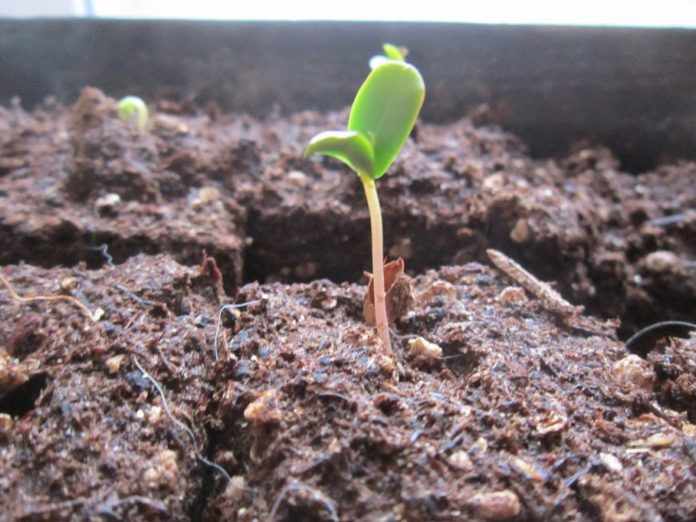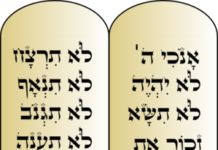Michelangelo was once asked: “How are you able to create such wondrous sculptures and works of art? How can something so ingenious and innovative emanate from mere mortal hands? Without skipping a beat, Michelangelo responded: “Before I even begin my work, the sculpture is already complete within the marble block. My job is simply to discover it, and then chisel away the superfluous material.” In other words, the dormant potential already exists beneath the surface, and the job of the artist is simply to discover that which is hidden within, transforming the concealed into the revealed.
Your Creation Story
This idea touches upon a deep truth within Jewish thought. While many think that Adam Ha’Rishon alone was worthy of a fascinating creation story, every single one of us has our own unique creation story as well. The Gemara in Niddah 30b discusses a very enigmatic tale describing the initial stage of each of our formations. The Gemara explains that when you were just a fetus, you were in a perfected and transcendent state of being; a malach taught you kol ha’Torah kulah, all of Torah, and you saw all of reality with a crystal clear lens. However, the Gemara continues with an anticlimactic punch (literally): just before you were born, this malach struck you on the mouth, causing you to forget everything you learned.
Two obvious questions arise: Why does the malach make you forget what you’ve learned? But more importantly, if he’s going to cause you to forget it, why even teach it to you in the first place?
The Vilna Gaon answers as follows: When the Gemara states that the fetus learns all of Torah, it doesn’t mean that you were learning basic Chumash with Rashi. Rather, it refers to the deepest realms of Torah, a transcendent Torah that is beyond this world. This Torah is the very root of reality, and you understood every aspect of it clearly. Not only were you shown this level of Torah, but you were also learning your specific share of Torah- you were being shown your unique purpose in the world, and how your unique role fits into the larger scheme of the human story as a whole. You were given a taste of your own perfection, of what you could, should, and hopefully will become.
But most importantly, when the malach struck you, you didn’t lose this Torah; rather, you lost access to it. Instead of it disappearing completely, this state of self became buried deep within your subconscious. The reason is as follows: What you received in the womb wasn’t real, it was merely a gift; something unearned and undeserved. The goal of life is to come into this world and rebuild all that you once were in the womb. However, this time, it will be real, since you’ve built it yourself. In essence, your job in this world is not to create yourself, but rather to recreate yourself; to re-attain your original state of perfection, as you were shown by the malach. This time, however, it has to be done through free will, by choosing to become great. Only by overcoming challenge and difficulty, and asserting your will-power, can you fulfill your true potential. In essence, our entire life is a story of teshuva- returning to our original, higher, and true self.
Learning or Recognizing?
Perhaps this is why we sometimes have a sense of recognition when we hear a deep thought or a profound insight. Instead of feeling like we are learning it for the first time, everything just clicks, almost as though we already knew the idea. This is because we do already know it. We’re not learning, we’re rediscovering what we already learned in the womb, what’s ingrained within us. Rav Yosef Dov Soloveichik speaks of a similar idea, explaining that we learn all of Torah in the womb to enable us to learn it in this world. The Torah is already there, now we must invest the effort to build it and manifest it into reality. This explains an interesting Gemara in Bava Metzia 6b. The Gemara says that if someone claims to have exerted himself in learning, but has failed to succeed, you should not believe him. Likewise, if he claims to have put no effort into his learning, but has succeeded, you should not believe him either. Only someone who claims to have exerted himself in his learning and succeeded should be believed. The Vilna Gaon raises a fascinating question: The wording of the Gemara is yagati u’matzasi, if he exerted himself and succeeded. However, the word metziah doesn’t mean to succeed, it means to find? Shouldn’t the Gemara have used words such as asisi, pa’alti, or hitzalti, which refer to accomplishment or achievement? The Vilna Gaon explains this in consonance with the aforementioned idea. Genuine learning isn’t about discovery or achievement, it’s about finding what already lies dormant within your subconscious, what you learned when you were in the womb.
This same idea is what lies at the heart of the classic debate between Plato and John Locke. Locke claimed that the human mind begins as a blank slate, and that a human being is then molded and imprinted upon based on everything he or she learns and experiences throughout life. Plato, however, quotes Socrates, who believed that everyone is born with the knowledge of everything, but has simply lost access to it. Therefore, the job of the teacher is not to teach new material, but to help the student come to understand on his or her own what they already know deep within themselves. This is why the word “educate” comes from the Latin word which means to “take out” or “draw forth”, because teaching is nothing more than drawing out the potential that lays dormant within each student.
Human Growth
With this principle in mind, let us explore the process of human growth. Many people grow from the outside in. They look around at society, their friends, the people around them, and then they shape themselves to fit their surroundings. The clothes they wear, the food they eat, and the things they talk about all become a reflection of their external surroundings. In other words, many people feel like they are a slab of clay, and mold themselves to fit in to their environment. But what if we realized that, much like Michelangelo’s sculptures, we too are already perfectly formed beneath the surface. Our job in life isn’t to take a slab of stone and sculpt something beautiful; our job is to discover who we truly are, who we already are. To “chisel away the superfluous material” and express our inner and true self. Growth isn’t about becoming great, it’s about become you; learning isn’t about discovery, it’s about self-discovery. You are a masterpiece covered with stone; your job in this world is to uncover yourself.
This is why the Torah compares man to a tree (Devarim 20:19). An apple seed already contains all of its potential within it. It then spends its life expressing the potential that once lay dormant. You never hear an apple seed looking around and saying “I want to be a pear seed”! As human beings, we too have all of our potential contained within us from the very beginning. As a fetus, we were each given our unique purpose, our unique tree to grow. Our job in this life is to take our seed and harness our potential. True happiness is when you are becoming you. When you are on the journey to becoming your true self, spending each day bringing out more and more of what you are meant to become.
In order to do this, we must understand the importance of self-awareness. Before you can love anyone else, you need to love yourself. As the passuk says: vi’ahavta li’rei’acha kamocha, love your fellow as you love yourself. To do this, you must first fall in love with yourself; only then can you expand outwards and love someone else. Likewise, before you can know anyone else, you must first know yourself. So many people spend their time trying to get to know everyone around them that they forget to understand themselves. They wake up in the middle of life, not knowing who they are, or what their life is about. True growth requires us to grow from within. We need to go into a room, by ourselves, and ask the real questions: Who am I? What drives me? What makes me unique? What are my talents? What are my passions? What can I contribute to the Jewish people and the world as a whole?
Instead of becoming a mirror, who reflects everything outside himself, we can become projectors. We can build something majestic and beautiful within ourselves, and then express that out into the world.
Becoming Part of Something Bigger
After developing one’s self, the next step towards greatness is contributing that uniqueness towards something greater than yourself, finding your “self” within a greater whole. This is why the greatest thinkers and talmidei chachamim are the ones who are both loyal to the mesorah, and are able, at the same time, to express their uniqueness and develop the mesorah further. This is the very essence of Torah Sheba’al Peh, the ability for the human being to express his unique Torah into the world, while still being loyal to the objective body of Torah. Torah Shebiksav doesn’t change from its original form as given by Hashem. Torah Sheba’al Peh, however, is in continuous development, and is the medium in which human beings can become part of Torah.
Living With Purpose
The Vilna Gaon builds upon the previous idea with an absolutely chilling message. The Gemara states that when you leave this world, you will meet three malachim. One angel will ask you: “Where are your mitzvos?”, the second angel will ask you: “Where are your aveiros?”, and the last angel will ask you: “Where is your Torah?”. Although the first two questions make sense, the third one is puzzling. After all, learning Torah is a mitzvah, and should therefore be included within the first angel’s question. Why then is it a separate, unique question? The Vilna Gaon explains that when you see this third malach, you will recognize him; he is the same malach who taught you kol ha’Torah kulah in the womb, and who showed you your individual greatness in this world. Now, he is here to greet you as you leave this world and to ask you: Where is your Torah? I gave it to you in the womb for free, but did you build it yourself? Did you make it your own? Did you fulfill your purpose in this world?
Avraham was told to leave his home and go on his journey. Hashem tells him two unforgettable words: “lech licha”. Licha can also be read as go “to yourself”. Avraham was being commanded to embark on a journey to “himself, because the genuine journey of life is the journey to the self. As we begin this year’s Torah cycle, we should each be inspired to bring our own Torah into the world and express our unique purpose.







